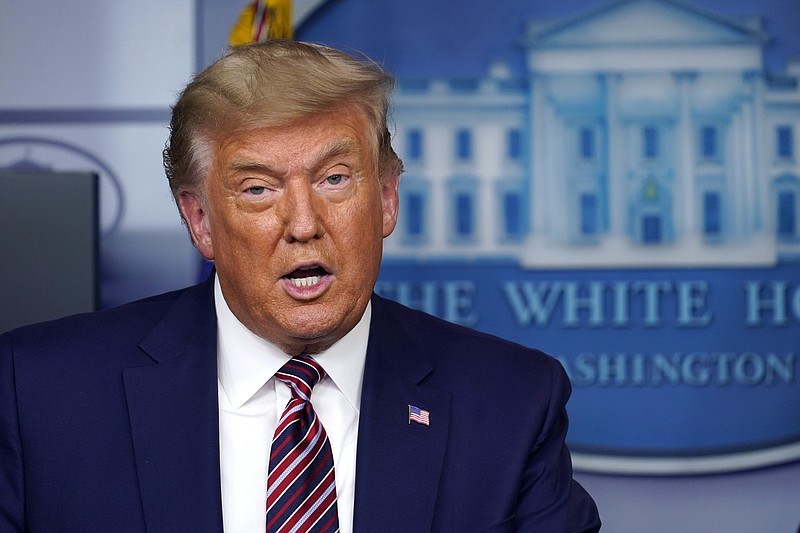WASHINGTON (AP) - The Trump administration issued regulations Friday that could lower the prices Americans pay for many prescription drugs.
But in a time of political uncertainty, it's hard to say whether the rules will withstand expected legal challenges from the pharmaceutical industry or whether President-elect Joe Biden's administration will accept, amend or try to roll them back entirely.
"The drug companies don't like me too much. But we had to do it," President Donald Trump said in announcing the new policy at the White House. "I just hope they keep it. I hope they have the courage to keep it," he added, in an apparent reference to the incoming Biden administration, while noting the opposition from drug company lobbyists.
The two finalized rules, long in the making, would:
Tie what Medicare pays for medications administered in a doctor's office to the lowest price paid among a group of other economically advanced countries. That's called the "most favored nations" approach. It is adamantly opposed by critics aligned with the pharmaceutical industry who liken it to socialism. The administration estimates it could save $28 billion over seven years for Medicare recipients through lower copays. It would take effect Jan. 1.
Require drugmakers, for brand-name pharmacy medications, to give Medicare enrollees rebates that now go to insurers and middlemen called pharmacy benefit managers. Insurers that deliver Medicare's "Part D" prescription benefit say that would raise premiums. The nonpartisan Congressional Budget Office estimates it would increase taxpayer costs by $177 billion over 10 years. The Trump administration disputes that and says its rule could potentially result in 30 percent savings for patients. It would take effect Jan. 1, 2022.
The pharmaceutical industry said Trump's approach would give foreign governments the "upper hand" in deciding the value of medicines in the U.S. and vowed to fight it.
"The administration is willing to upend the entire system with a reckless attack on the companies working around the clock to end this pandemic," the Pharmaceutical Research and Manufacturers of America said in a statement, adding it is "considering all options to stop this unlawful onslaught on medical progress and maintain our fight against COVID-19."

